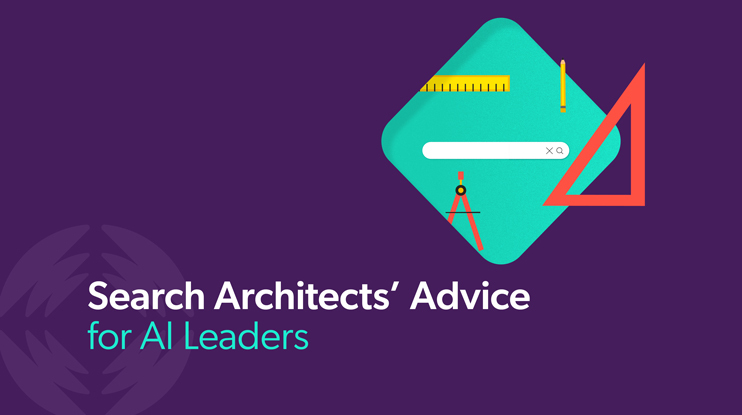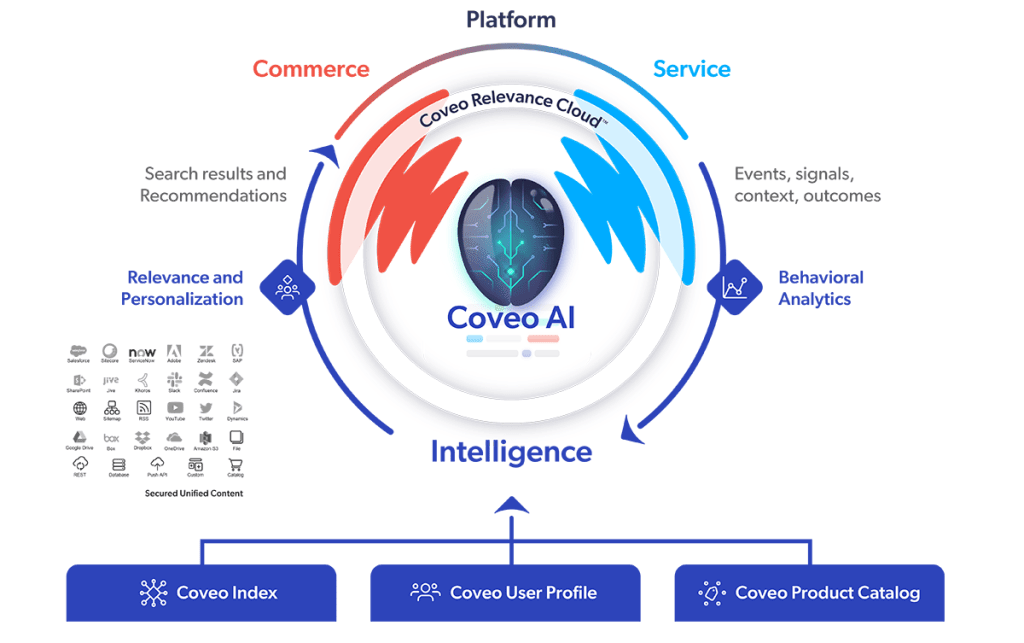AI is the future of search. According to Coveo’s report “Enterprise Search: The Unsung Hero,” 93% of organizations believe that. But here in the present — even as the rapid rise of generative AI reshapes customer expectations around the search experience — things look much different.
When Coveo surveyed more than 600 tech professionals for this report, we found that:
- 96% of respondents reported a gap between the need for search improvements and the priority that search receives in their organization.
- 81% say that getting CEOs and other management to engage with the rest of the organization about search is difficult.
- 38% said search efforts are not well aligned with business needs.
- Only 13% of companies believe they are excelling in search.
- 67% of enterprises have AI-enabled search but haven’t implemented it.
- 51% of enterprises don’t believe they have the ability to implement AI-powered search.
- Other priorities have forced 55% of businesses to hold off implementing AI, while a lack of resources impacts 51%, and worry about AI tuning impacts 41%.
Behind those numbers are a lot of missed opportunities. AI search has the power to transform organizations. But line-of-business leaders need more awareness about the potential of AI search and how to implement it before that power can be unleashed.
If your organization has been lagging in implementing AI search, here’s what search pros want you to know about why you need it and why implementing it is probably more within reach than you’ve imagined.
1. Major Players Are All in on AI Search
The next most important thing for business leaders to understand about AI search is that it has already redefined customer expectations for search — and will continue doing so at a breakneck pace. Using AI tools, major players like Amazon and Netflix have set the bar for what a search experience should be like. And, with innovations like generative AI, they’re going to keep raising that bar.
“AI will fundamentally change every software category, starting with the largest category of all — search,” Satya Nadella, the chairman and CEO of Microsoft, said last year. And Microsoft is hardly alone. Meta, Google and others are working on their own generative AI capabilities.
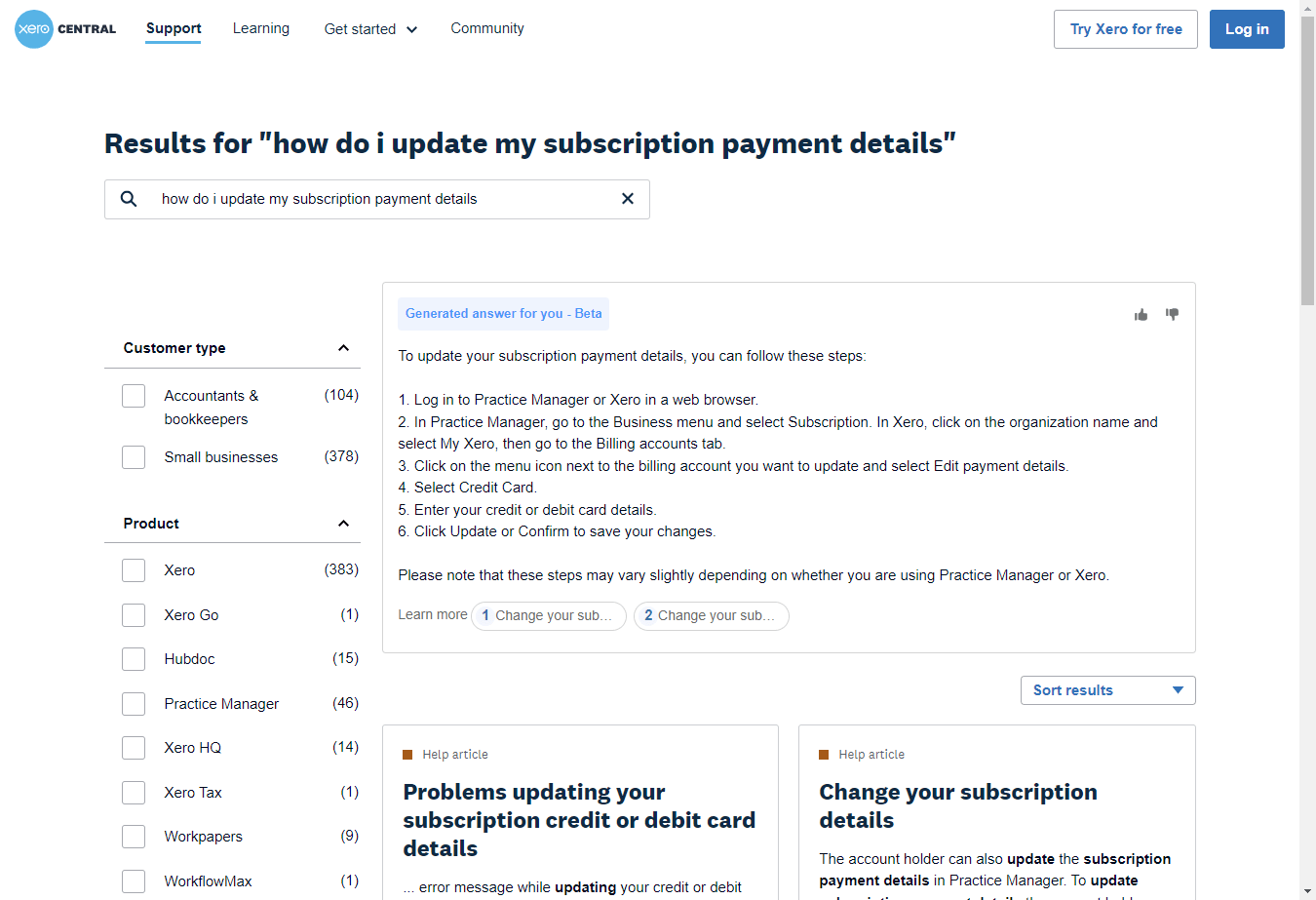
They’re aiming to create search experiences that feel more like a conversation using natural language. In the future, search will feel less like interacting with a machine and more like being helped by a savvy and knowledgeable personal assistant.
Your company must be aware of the direction that tech leaders are moving in — and that they will be establishing new expectations around conversational AI that customers will carry from their sites to yours.
2. AI Delivers the Personalization Customers Want
User expectations about search can often be boiled down to a single word: personalization. And personalization means understanding context. And context can mean role (loyal buyer, first-time visitor, remote employee), geography, time of day, what they have already viewed/purchased/searched for, and so much more.
But Coveo’s survey of tech professionals found that 99% of organizations struggle to deliver relevant personalized search results. Because rules just don’t cut it.
AI-powered search makes personalization at scale possible even if your site doesn’t have legions of returning, logged-in users, like the Amazons of the world do. AI tools can tailor a customer’s search results based on what past site users have done.
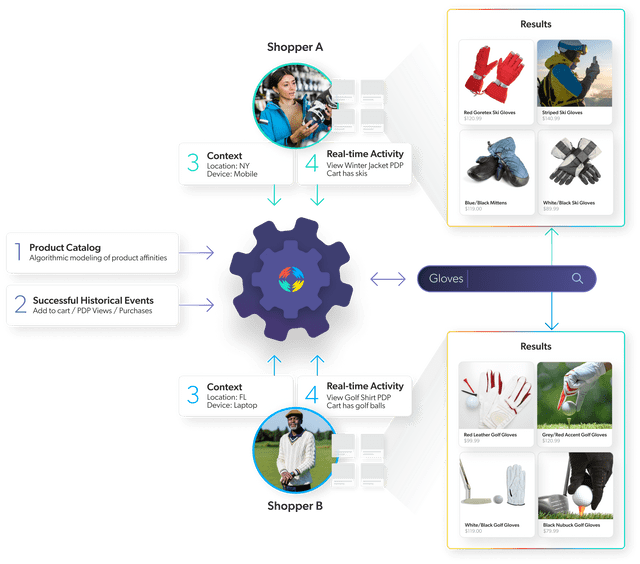
For example, what products did they view? What educational content on the site did they consume? And what did they ultimately end up buying? Based on information like that, AI search can predict which results will be most relevant to a new searcher.
“AI is really good at doing this. It can identify — based on a few behaviors that you’ve engaged in online — that you’re who you are and you’re likely to be looking for this kind of a product,” said Brian Kilcourse, managing partner at Retail Systems Research, a retail technology consultancy.
AI search can achieve this level of personalization based solely on in-session activity – the user does not have to be logged in. That’s especially important considering that Coveo’s Ecommerce Relevance Report 2023 found that the majority of most shoppers’ buying journeys are anonymous. More than one-quarter (28%) disagreed with the statement “When shopping online, I will only log in at checkout,” while almost one-third (32%) said that they always check out as a guest when they shop online.
3. AI Search and Privacy Can Coexist
While customers crave personalization, that doesn’t mean that they’ve forgotten about privacy. A growing number of shoppers are not consenting to the usage of cookies and to being tracked while they visit websites.
Effective AI search delivers personalization no matter what level of privacy customers expect online. For example, when customers agree to be tracked, Coveo can personalize based on past behavior, in-session browsing affinities and user affinities. For customers who do not agree to be tracked by cookies, Coveo’s APIs deliver highly relevant experiences by leveraging product attributes and overall shopper site behavior.
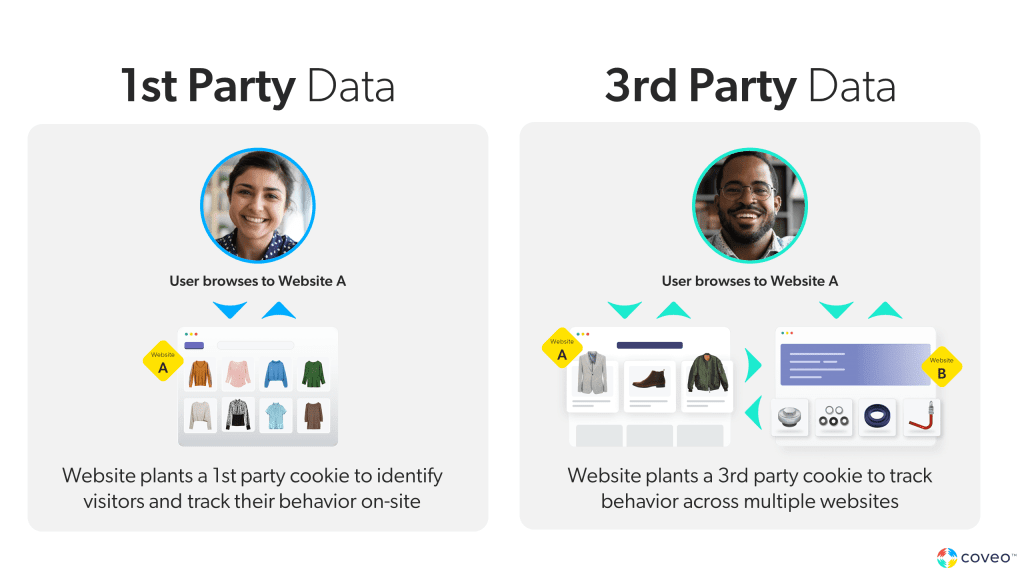
Additionally, techniques such as data anonymization, encryption, and access controls can be integrated into AI search to safeguard sensitive data.
4. AI Search Drives Digital Transformation
Of course, there will always be competing IT priorities in any organization. But there’s a strong case that search powered by artificial intelligence should rise to the top of those priorities because of the business value it provides.
A key business imperative for nearly every organization is digital transformation — in other words, using technology to improve efficiencies, increase revenue, and decrease costs. With AI, search can be a tool that drives digital transformation. In our survey of tech professionals, 84% said they see search as a force multiplier for digital transformation.
By tapping into the power of AI search, organizations can foster a culture of innovation and agility. AI technologies allow businesses to quickly adapt and improve search experiences based on user feedback and changing market dynamics. This iterative approach promotes continuous improvement and helps organizations stay ahead of the competition.
Search analytics can enhance your overall business and digital capabilities. With AI search, you can better understand your audience and what they want. If you look closely at search log files, you can determine intent, what is missing, and what is broken. IT that centralizes search experiences can deliver better capabilities faster and with fewer assets to manage.
“AI requires clean data. Data is food, and no athlete performs well when eating junk. No matter if it is the documents indexed, or behavioral tracking, clean data and clean catalogs are important.
– Vincent Bernard, Sr. Architect Coveo
5. Think Like a Search Architect
As the steward and user of your search ecosystem, you are the best person to not only identify important elements but also the relationships between them. That means knowing your data and understanding how data can best be turned into information.
Data from different sources can be married together to provide a truly robust application – but how that data is termed in one database may not be the same as in another. You need to know which elements are most important – and be able to help map them.
This requires some level of data analytics and data normalization that François Verpaelst does a superb job of explaining.
It’s not that you need to know how to do it – it’s that you need to know that it needs to be done.
6. You Don’t Have to Build AI Search from Scratch
AI search is quite a complex undertaking. It involves various requirements like securely indexing content, fine-tuning relevance, and designing a modern UI. Finding and affording team members with the necessary expertise can be a real challenge. And even if you manage to assemble your “dream team,” building and deploying an AI search system will still take a considerable amount of time.
However, there’s a more accessible option available. You can consider a “search-as-a-service” solution that comes with pre-built artificial intelligence capabilities. This solution can help address resource limitations, especially when dealing with large volumes of content and multiple data sources that require AI for scalability.
When evaluating such platforms, look for an administration layer that simplifies search management, alongside APIs that allow for easy extension and integration when needed. The ideal solution should empower content creators and experience designers while seamlessly integrating with your existing environment, data, and processes.
7. Do It Yourself Capabilities
We get it. You are tired of waiting for IT to build what you want. And guess what, they are tired of tweaking and boosting. Save their sprint time for high value coding — and you find configurable front end tools that take the guesswork (and code work) out of building an application.
What else should you look for in an AI search platform?
- Easy onramps to common enterprise and SaaS platforms to load and incrementally index data.
- Development APIs, low-code tools, and pro-code development kits that make it easy for DevOps teams to proof-of-concept (POC), prototype, develop, and enhance search applications.
- Tools for categorizing, tagging, normalizing, and enriching content.
- Built-in and configurable ML models for results ranking, recommendation engines, natural language querying, and related content.
- Analytics capabilities that collect rich usage information, provide out-of-the-box analytics around customer journeys, and have easy-to-implement integrations with data warehouse and self-service BI technologies.
Partner With an Expert
To get your organization up to date with AI search, it helps to partner with a proven search vendor. Look for experienced experts who have research-backed knowledge and an eye on the future of search. By teaming up with such a company, you can lift the burden of risk from your own shoulders.
You’ll know that you’re engaging with a collaborator that can deliver precisely what you need, while helping you avoid the costly mistakes that others may have encountered.
If you have any questions about this article, or if you’d like to gain a personalized and in-depth understanding of how AI search can revolutionize your business, we invite you to book a demo with Coveo today. We’re ready to help you explore all the benefits and possibilities that AI search can bring to your organization.

